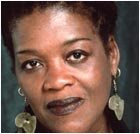 Florida African Diaspora Studies Consortium (FLASC)
Florida African Diaspora Studies Consortium (FLASC)
FLASC Mission:
The African Diaspora refers to the dispersal of African peoples all over the world through voluntary, forced and induced migrations. These have resulted, thereby, in the relocation and re-definition of African peoples in a range of now international locations and their recreation and reformation of these cultures wherever they exist.
Florida African Diaspora Studies Consortium is dedicated to pursuing African Diaspora studies initiatives beginning in south Florida and extending nationally and internationally. We are located in South Florida, and our primary umbrella is FLASC – Florida Africana Studies consortium. Our primary emphases have been spearheaded by a grant from the Ford Foundation, “Intersections of African Diaspora Knowledge Communities” to develop a range of programs and projects intended to make South Florida a leading site for African Diaspora Studies as we provide the nexus for intersections between the academy, the community and the public schools.
 Florida African Diaspora Studies Consortium (FLASC)
Florida African Diaspora Studies Consortium (FLASC)

